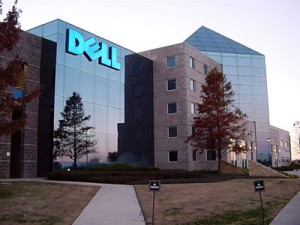Was leverage buy out a well planned strategy from Dell Inc. (NASDAQ:DELL)

Michael Dell, a college dropout in 1984, only to invent a new concept of making and selling in custom made Personal Computer, could not have imagined his time is challenged by changing technology that has painted Personal Computer as “out of date “ and shrinking.
The chairman in Michael Dell is hotly rumored to don the role of private investor along with others, headed by Silver Lake Management LLC, a private Equity firm, that target to acquire the publicly traded Dell Inc, the firm he started and went public only to take the sheen off public gaze from his long nurtured firm via Leveraged Buy Out (LBO) route.
Generally in LBO, a smaller firm tries to acquire the bigger one, pledging the assets of the latter and then servicing the loan out of the combined cash flow, to eliminate the competition. LBO as it stands out is, a kind of motivated acquisition of a target firm to reap the enhanced benefits of all sorts
It is ensures effective tax planning as well but resulting in tax avoidance, to speak monetarily and to avoid the public scrutiny, to speak ethically in this case. Right now, Dell Inc. (NASDAQ:DELL) is not doing well., The once $100 billion capitalized company has shrunk to about $20 billion one, before this LBO news broke out , losing almost 80% of its value .The lost focus on core product is attributed to this downfall, besides changing technology.
Michael Dell doesn’t want the public scrutiny of Dell Inc. He wants to re -orient the business in his way. He wants to effectively use the loopholes in the US tax laws that exempts the overseas profits made by US Corporations that are not repatriated back, which otherwise would pinch them at 35% and still controls the company.
Dell Inc. (NASDAQ:DELL) is expected to put around $4 billion and the equity firm is investing $2 billion with the possible arraignment of at least 4 banks to lend for estimated $15 billion, as loan.
All is not well with LBO, either. It stands for high debt to equity ratio, meaning, debt content of the balance total capital is more than equity, which is essentially financed by collateralizing the assets of acquired company that is sought to be serviced by operating cash flow of the combined one. More the debt, more the interest obligation and less the retained earnings that cripple an entity and eventually lead to liquidation of the acquired company. That implies, the insufficient cash flow, post acquisition.
This is a possibility and the potential risk involved in LBO, since the assets including the cash left in the US balance sheet of Dell Inc, may be collateralized to raise the $15 billion loan, to acquire Dell Inc. (NASDAQ:DELL). If post LBO deal, Dell as a private firm does not do well, then the lenders in banks will enforce selling of the assets of erstwhile Dell Inc to service their loan.
Also, including Dell, big firms from US have kept its cash and cash equivalent in overseas operations, to avoid US tax @35%, if repatriated back to US. This compels the companies to take the route of LBO, to finance the deal and thereby, a public corporation of this standing like Dell Inc. (NASDAQ:DELL) minus the overseas cash pile.
Even if Dell attempts to collateralize its overseas cash pile, then US Tax may visit them @35%, the moment it is attempted. Of course, Michael shall fine tune his lobbying skill, here.
And one more conflicting scenario is, Michael Dell is going to be on the Board post deal.
These red signals still may not stand in the way of Michael Dell, who will find a way to overcome these hurdles as he did 30 years before, thanks to his inherent innovative skill that remains as sharp as ever.
Shares of Dell Inc. (NASDAQ:DELL) were up by 0.16% to close at $12.84.













